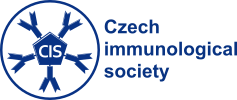Microbiota and inflammatory diseases
To investigate the immunology of the mucosa and the
interactions between host and microbes, we focus mainly on the gut. The
gut microbiota is a complex ecosystem consisting of a variety of
bacteria, viruses and fungi that are not yet fully characterized.
Numerous interactions between host and microbes characterize the
microbial community and influence the physiological functions of the
host, the development of the immune system and trigger various
pathological conditions. Many multifactorial diseases occur as a result
of a disturbed mucosal barrier or as a result of changes in the immune
response to the components of the gut microbiota. Influencing the gut
microbiota by diet, by drugs or by the disease itself can therefore
make a person more susceptible to immune-mediated diseases such as
inflammatory or autoimmune diseases or cancer. We are investigating
this interaction to gain a deeper understanding of the underlying
mechanisms. By combining basic research approaches with the analysis of
patient samples, we are trying to translate this knowledge into
clinical practice. The effect of the gut microbiota is not limited to
typical gut diseases such as inflammatory bowel disease, but can also
influence skin inflammation in psoriasis, lung inflammation in asthma
or eye inflammation in autoimmune uveitis. Here we investigate which
microbes are associated with these diseases and their complications and
how these microbes interact with the host in order to improve
diagnosis, therapy or even prevention.
|
Biomarkers of human diseases
Antibody
response against antigens and self-antigens is an integral part of
adaptive immune mechanisms. However, the somatic effect of generated
antibodies is pleiotropic, depending on their heterogeneity, i.e. the
ratio of isotypes, specificity and affinity. In consistence with this
fact, the role of various antibodies and autoantibodies is a matter of
contention due to the absence of a clinical correlate. Nevertheless,
the occurrence of certain serum antibodies is of diagnostic
value. Notably, the testing of specific antibody may possess a
promising prognostic or predictive potential. For this reason, in
cooperation with physicians we focused on the study of antibody
response against gliadins and other food-proteins and autoantibodies in
patients with active celiac disease, those on a gluten-free diet,
patients with autoimmune disease associated with celiac disease, and in
general population. Moreover, we also studied the occurrence of
autoantibodies against the multifunctional protein calreticulin, their
heterogeneity and fine specificity and clinical relevance in patients
with autoimmune and oncological diseases and idiopathic
cardiomyopathies (Hoffmanová I, et al. 2015, Sánchez D, et al. 2016). The original findings of our studies are disseminated
via a teaching activity (Theory of immunology methods; Faculty of
Science, Charles University in Prague).
Next, we linked our
interest in early
diagnostics with our long-time passion for host-microbe interaction and
start
to study the predictive capacity of anti-microbial response and
biomarkers of
gut damage in multiple human diseases. We focused on intestinal fatty
acid binding protein (I-FABP), which is released to the bloodstream,
and later
filtered to the urine, as a result of gut epithelium damage. We found
that
analysis of urinary I-FABP could not only predict the post-operative
neonatal
necrotizing enterologitis (NEC), but it can also distinguish it from
sepsis
(Coufal et al., 2016). We continued our research with other neonatal
emergencies
finding that while I-FABP is a marker for intestinal mucosa damage in
gastroschisis,
it fails to predict early recovery, so it is not suitable for outcome
prediction
in clinical settings (Kokesova et al., 2019). Next, to gain an insight
into the inflammatory bowel disease (IBD) pathogenesis, we analyzed
serum biomarkers and specific anti-microbial B and T cell responses to
the gut commensals in different forms of IBD. We found that decrease in
matrix metalloproteinase (MMP)-9 and increase in MMP-14 are the
strongest factors discriminating IBD patients from healthy subjects and
that low transforming growth factor-β1 (TGF-β1) is associated with
disease relapse and low osteoprotegerin with anti-tumor necrosis
factor-alpha (TNF-α) therapy. Patients with CD have significantly
decreased antibody and increased T cell response mainly to genera
Eubacterium, Faecalibacterium and Bacteroides. These results stress the
importance of the gut barrier function and immune response to commensal
bacteria and point at the specific differences in pathogenesis of
different forms of IBD (Coufal et al., 2019).
|
Comparative immunology
To study the comparative and developmental immunity, we use quite unusual
model organism, earthworm Eisenia andrei, which lives mostly in compost
representing the environment with very high antigenic pressure. In
contrast to sophisticated vertebrate or mammalian immune system, the
use of invertebrate organism is, due to its simplicity, appropriate for
the study of various aspects of innate immunity. Since invertebrates do not
possess the acquired immunity, earthworms rely solely on the innate
immunity in their defense strategies. The coelomic fluid of earthworms
contains a great variety of molecules involved in direct elimination of
invading microorganisms. We have identified several of such molecules,
e.g. pattern recognition receptors – coelomic cytolytic factor, two
Toll-like receptors and LBP/BPI molecule. These receptors recognize
various conserved molecular structures of microorganisms. The highest
abundancy of these molecules is present in the intestine representing
the tissue in direct contact with microorganisms. Further, we have
described some antimicrobial proteins such as lysozyme and
lysenin/fetidin molecules.
Earthworms participate in soil fertility. They are in very close
contact with the soil via both alimentary tract and highly permeable
skin. They have been described to bioaccumulate various organic and
inorganic pollutants and thus allow these substances to enter the food
chain. For these reasons, earthworms are often used in monitoring soil
ecotoxicity. In our laboratory, we follow the defense response of
earthworms on various organic pollutants and also nanoparticles.
The aims of our research group are:
• Recognition and description of novel molecules
involved in defense
reactions of earthworms. Assessment of their role in terms of
developmental immunity and defense responses in vertebrate and mammals.
• Isolation of biologically active compounds with
possible applications in laboratories and pharmaceuticals.
• Finding potential sensitive earthworm biomarkers as
tools for soil pollution assessment.
|


